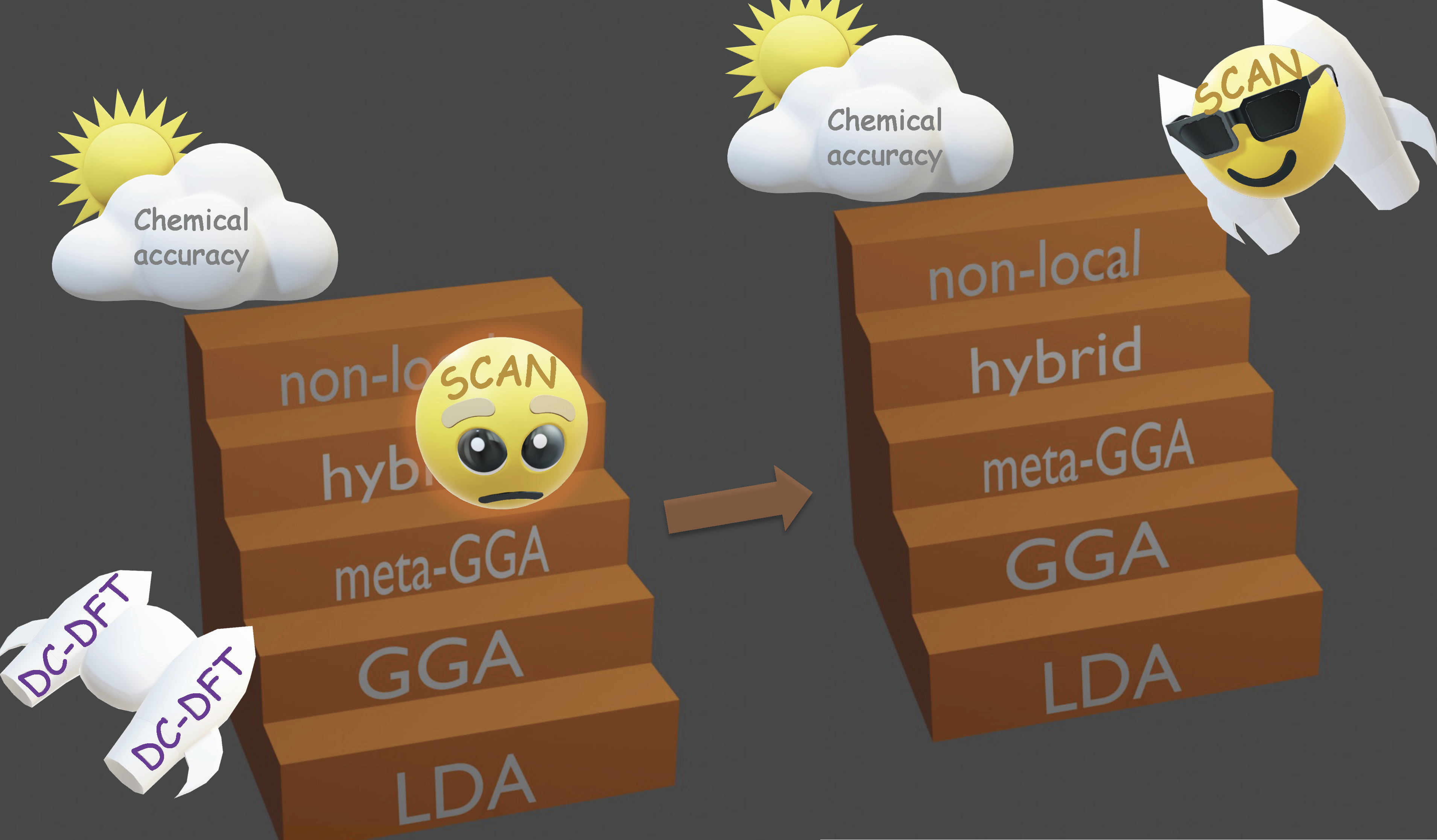2024 AIChE Annual Meeting
(62o) Elevating Density Functional Theory Towards Chemical Accuracy for Condensed Phase Simulations through Machine Learning and Many-Body Techniques
Author
Albeit maintaining a good balance between accuracy and efficiency, no density functional has so
far achieved the degree of accuracy necessary to correctly predict the properties of hydrated systems across
the entire phase diagram. Here, we present density-corrected SCAN (DC-SCAN) method for
water and other hydrated systems which, minimizing density-driven errors, elevate the accuracy of the SCAN functional to
that of coupled-cluster theory, the “gold standard” for chemical accuracy. Building upon the
accuracy and efficiency of DC-SCAN within a many-body formalism, we introduce a data-driven
many-body potential energy function, the MB-SCAN(DC)PEF, that can quantitatively reproduce
coupled-cluster reference energetics of water clusters. Importantly, the properties of liquid
water calculated from molecular dynamics simulations carried out with the MB-SCAN(DC) PEF
are found to be in excellent agreement with the experimental data, which thus demonstrates
that MB-SCAN(DC) is effectively the first DFT-based model that correctly describes water from
the gas to the liquid phase. Apart from neutral water, we present extensive calculations aimed at determining the accuracy
of the DC-SCAN functional for various aqueous systems. DC-SCAN shows remarkable consistency
in reproducing reference data obtained at the coupled-cluster level of theory, with minimal loss
of accuracy. The accuracy of DC-SCAN has been further extended by integrating the capabilities of neural network potentials, enabling the generation of reactive machine-learned potentials. These were used to investigate rare-events such as the autoionization of liquid water within the confinement of a carbon nanotube, with the help of enhanced sampling.
